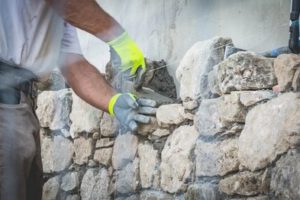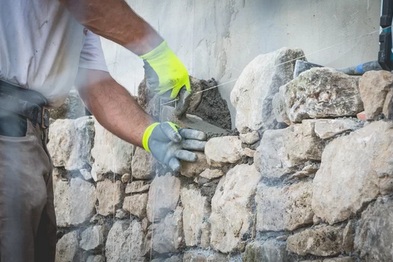Before working as a stonemason, one must become a guild member, where they were ranked according to their knowledge and experience. Apprentices were indentured to their masters for the duration of their training, and journeymen were paid for their work and could go on journeys. The highest honor for stonemasons was the title of Master Mason, which was given to those who had reached this level of experience. Today, these masons are most often involved in historic construction projects, but the guilds still maintain their traditions, despite their dwindling numbers.
Training as a stonemason involves intensive classroom instruction and practical work. These men and women at https://masonrycharleston.com/ are knowledgeable about stone types and their proper applications and methods of repair. Some stonemasons specialize in specific branches of stonemasonry, while others are skilled at all aspects of the industry. The skills required in stonemasonry range from building foundations to intricate stone carvings. And while many stonemasons are private contractors, they must adhere to a strict schedule. They may work overtime to meet deadlines.
As with many other professions, stonemasons may require a certain level of secondary education. NCEA Level 2 construction and mechanical technologies, English, maths, and physical education are helpful. Alternatively, year 11 and 12 students can gain experience in stonemasonry through a constructive programme. A trade academies or the STAR programme may also be beneficial for gaining relevant experience. Some stonemasons even start their own contracting business.
Unlike carpenters, stonemasons have the advantage of having a broad knowledge of the history of stonemasonry. They are also able to apply math skills to calculate the material needed to create their stone structures. Hence, it is important to have a solid grasp of maths in order to succeed as a stonemason. They must know the proportions of stone structures. They must also be skilled in the use of hand tools.
Historically, stonemasonry dates back to ancient times, when people first began building structures and monuments. Stonemasons were essential to the early history of civilisations and have been used since the Neolithic Revolution. The Egyptians and Central American civilizations used stone to build their famous pyramids and step pyramids. The Greeks and Romans used stone for public works and temples. The ancient Greeks and Romans used stone for their public works, and the famous marble sculptor Sophroniscus was a stonemason.
There are many types of stonemasons, from carvers to those who create art carvings on rock. Some stonemasons specialize in carving, including statues and monuments for cemeteries. Many work with less than 15 pounds of stone and only one inch thick. These stonemasons apply stone veneer to walls and other interior surfaces. Many people choose stone veneer for the aesthetics and durability of their buildings. If you don’t want to spend a fortune on a stonemason, you may opt for other types of masonry.
Some stonemasons choose to go to a technical school to learn their trade. They can enroll in masonry classes or work as laborers for a few years. These courses can boost their credentials and increase their chances of getting hired in a masonry company. Regardless of whether you are interested in working as a stonemason, the right education and training is key to a successful career. If you’re unsure of what you need, start by researching the requirements in your area.
As a stonemason, you will often work alongside other masons and laborers on construction sites. Good teamwork skills will help you complete your responsibilities more effectively and efficiently. Working as part of a team will allow you to follow safety protocols and look out for one another. The more you know about masonry, the more likely you’ll enjoy working as a stonemason. Just keep these in mind: you never know when you’ll find a job.
The job description of a stonemason varies from one job to another. Your duties may include setting stone on floors, laying tiles, replacing broken masonry units, and filling or finishing joints between stones. You may also be called upon to tuckpoint or polish mortar as well. In addition, your schedule may be dependent on the weather and your contract length. So, it’s important to be flexible about your hours. If you’re interested in this field, apply now.

